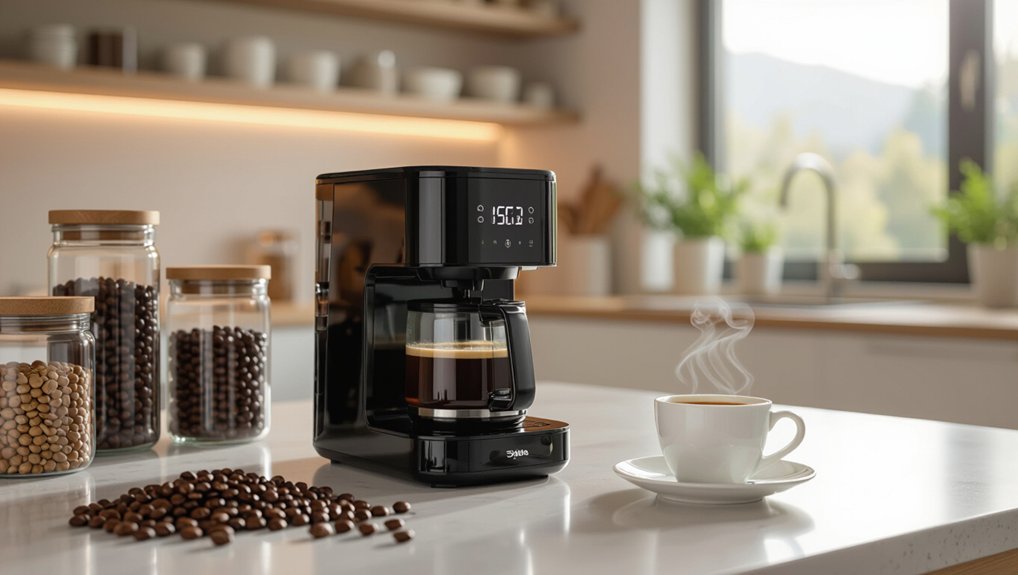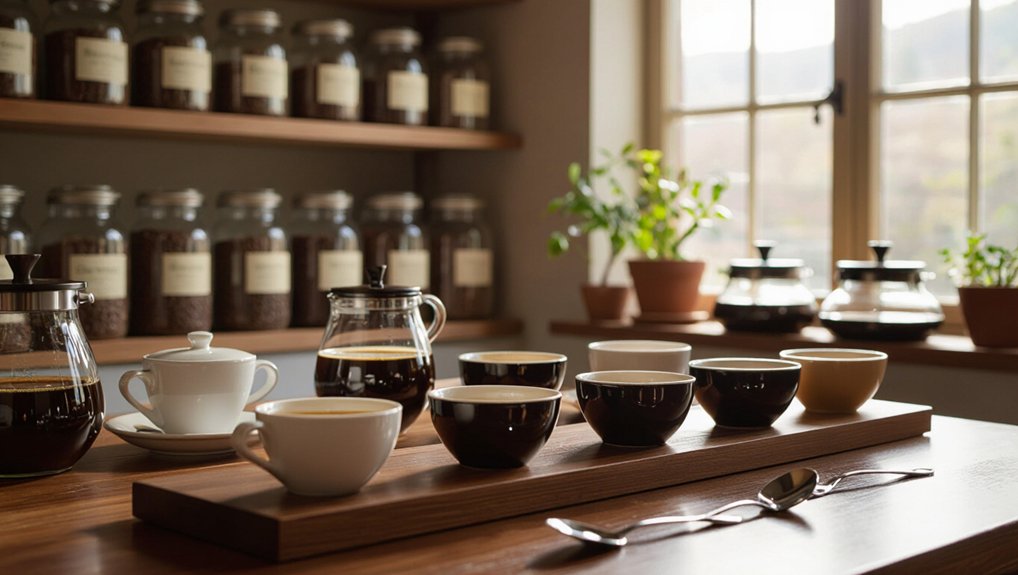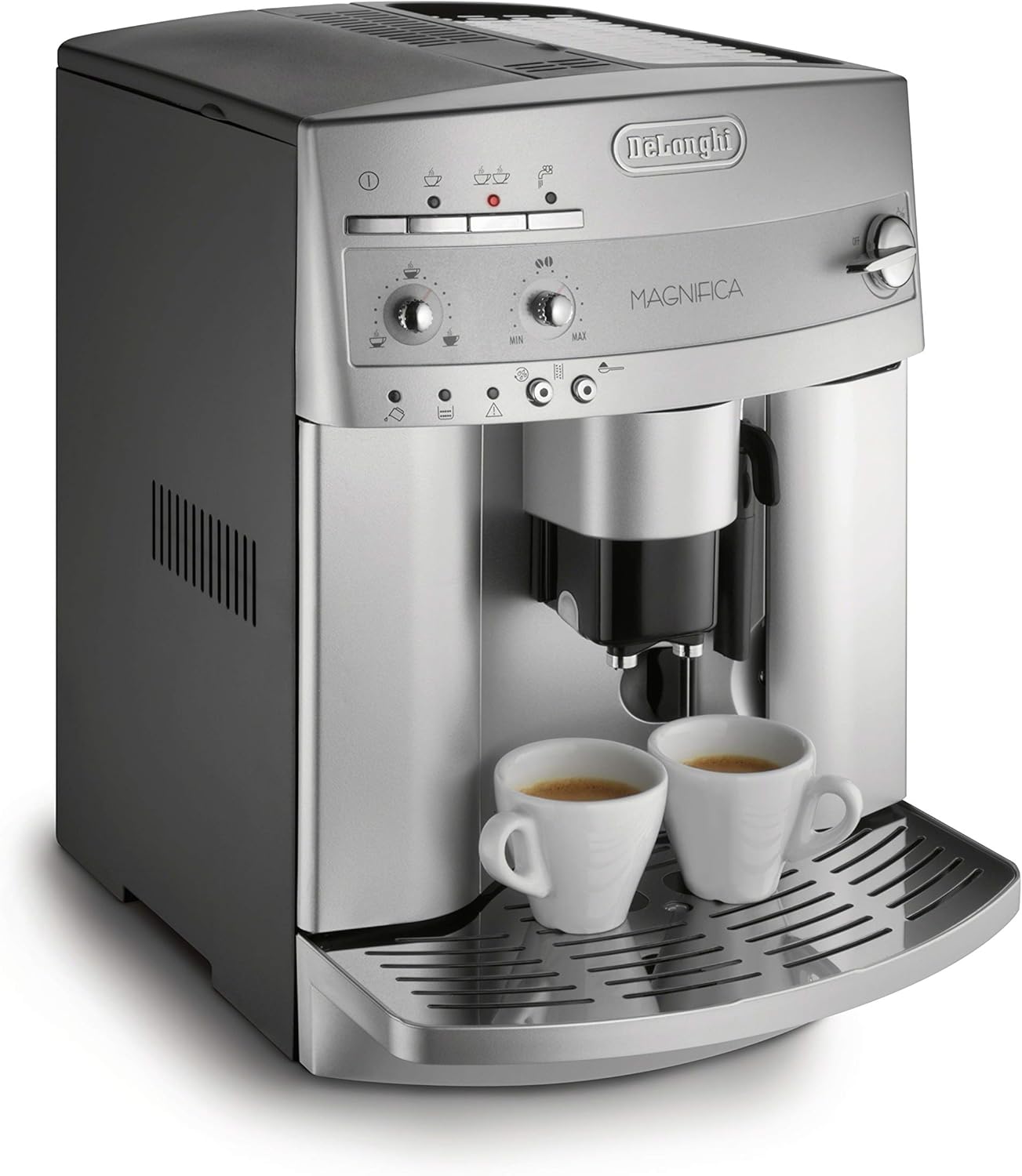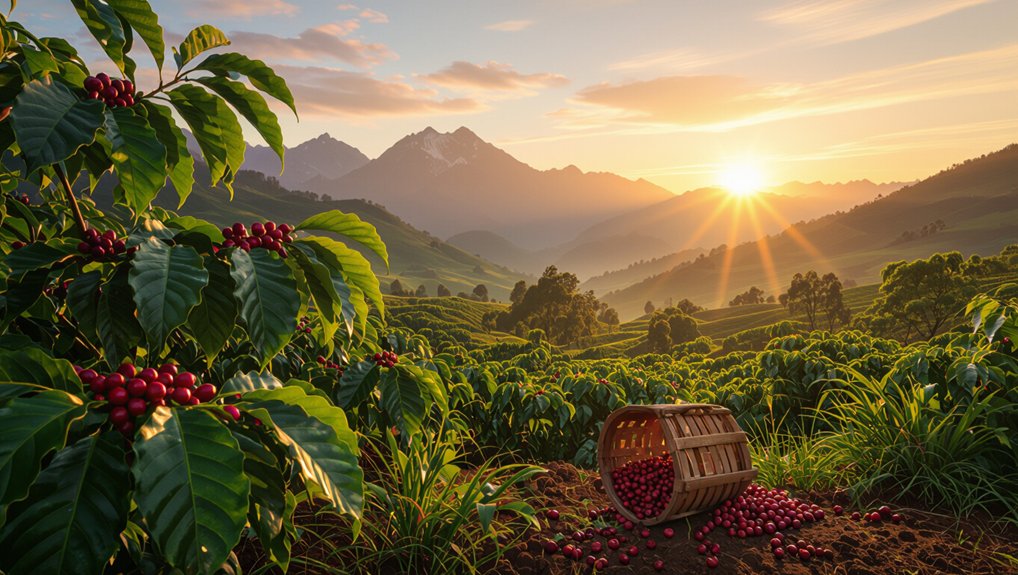Are you curious about the buzz surrounding synthetic coffee and whether it’s worth trying? With traditional coffee farming facing climate change challenges and sustainability concerns, more people are exploring lab-created alternatives that promise the same beloved flavor and caffeine kick without the environmental impact.
Synthetic coffee represents a groundbreaking approach to coffee production, using cellular agriculture and biotechnology to recreate the taste, aroma, and effects of conventional coffee beans. This innovative brewing method could address everything from supply chain disruptions to ethical sourcing issues that plague the traditional coffee industry.
In this post, we’ll explore what synthetic coffee actually is, examine its potential benefits and drawbacks, and help you understand whether this scientific advancement could become your new go-to morning energizer. You’ll discover how this technology works, what it tastes like, and what experts predict for its future in the coffee market.
Origins of Synthetic Coffee Technology
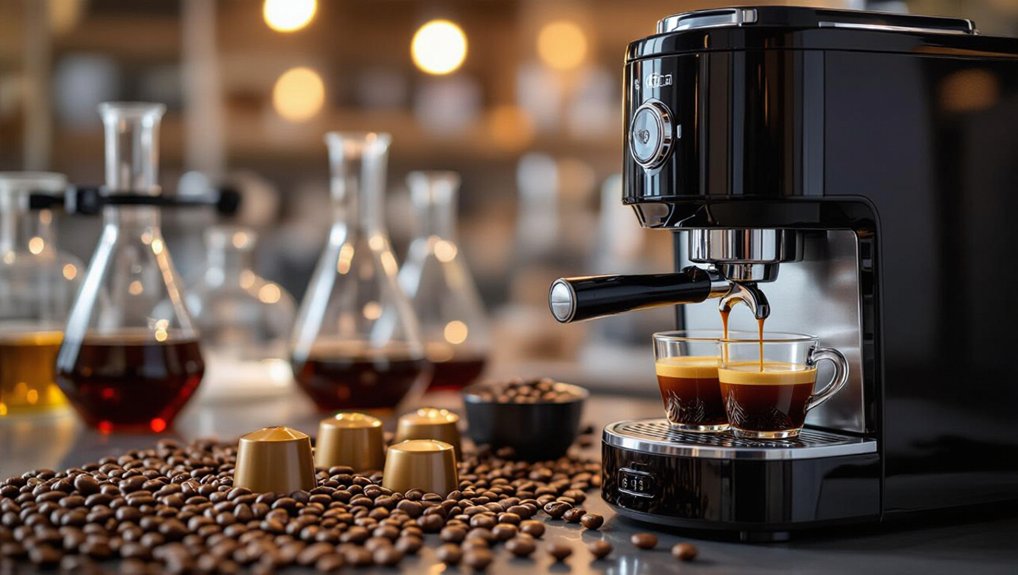
Because traditional coffee production faces unprecedented challenges, innovative minds have begun exploring synthetic alternatives that could revolutionize how we experience our daily brew.
Climate change and supply chain disruptions have pushed technology toward creating coffee without conventional farming methods. Synthetic coffee technology leverages unique production processes, extracting molecules from upcycled ingredients like date pits to replicate authentic coffee flavors.
Companies such as Atomo are pioneering this ecological alternative, offering potential solutions to environmental pressures facing traditional coffee production.
Significant investment signals growing interest in these groundbreaking approaches to reimagining our beloved morning beverage.
Manufacturing Process Revealed
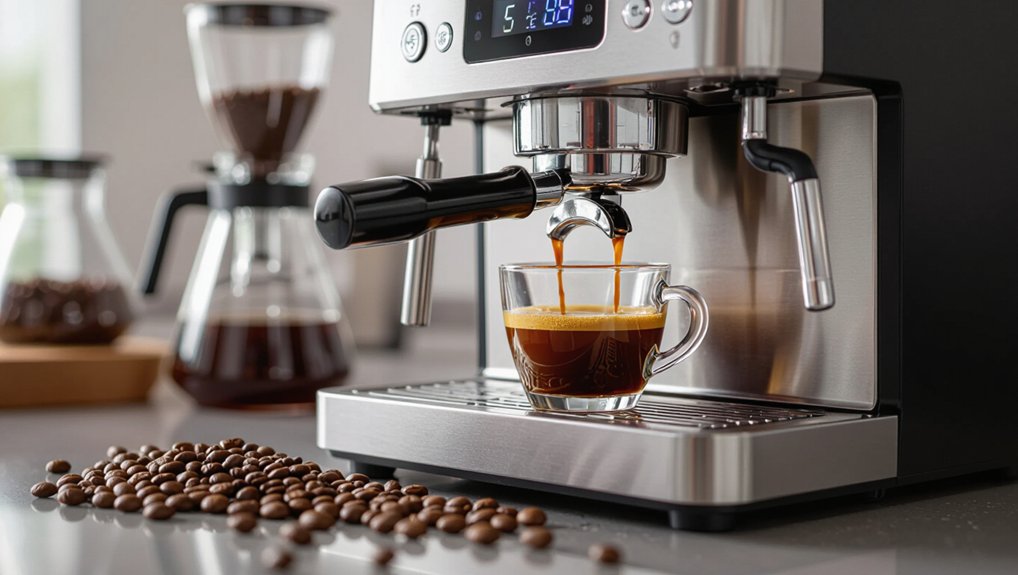
When you dive into the world of synthetic coffee, you’ll discover a fascinating manufacturing process that challenges traditional coffee production.
Bioengineering methods leverage upcycling techniques to extract flavor compounds from unexpected ingredients like date pits and lemon peels. Companies such as Atomo use innovative fermentation processes to create coffee alternatives with ecological benefits.
These synthetic coffee products emerge through cutting-edge techniques that culture molecular structures mimicking authentic coffee.
While still facing limited availability, the innovation represents a revolutionary approach to coffee production, transforming how we think about our favorite morning beverage.
Comparing Natural vs. Synthetic Coffee Profiles

After exploring the innovative manufacturing techniques behind synthetic coffee, coffee enthusiasts will naturally wonder how these lab-crafted brews stack up against traditional coffee. Let’s compare their unique characteristics:
| Attribute | Traditional Coffee | Synthetic Coffee |
|---|---|---|
| Origin | Coffee beans | Lab-engineered |
| Flavor Profile | Complex, nuanced | Mimics natural notes |
| Ecological Impact | High water usage | Waste upcycling |
While synthetic coffee aims to replicate the caffeine kick and flavor profile of traditional coffee, it’s still an emerging market. Consumer reviews suggest it’s an intriguing alternative with potential ecological benefits, though it can’t fully replace the rich complexity of coffee beans. The pre-ground format and innovative production make it an exciting development for coffee lovers seeking sustainable options.
Potential Health Implications

If you’re curious about the health landscape of synthetic coffee, you’ll find it’s a complex terrain of potential benefits and lingering questions.
While synthetic coffee offers a similar caffeine boost to natural coffee, it lacks the robust antioxidants and phytochemicals that contribute to traditional coffee’s health benefits. This means potential limitations in supporting cognitive function and disease prevention.
The sustainability and reduced environmental footprint are promising, but the long-term health implications remain uncertain.
Consumers should approach synthetic coffee with cautious optimism, recognizing its innovative potential while realizing that more research is needed to fully grasp its health profile.
Environmental and Sustainability Considerations
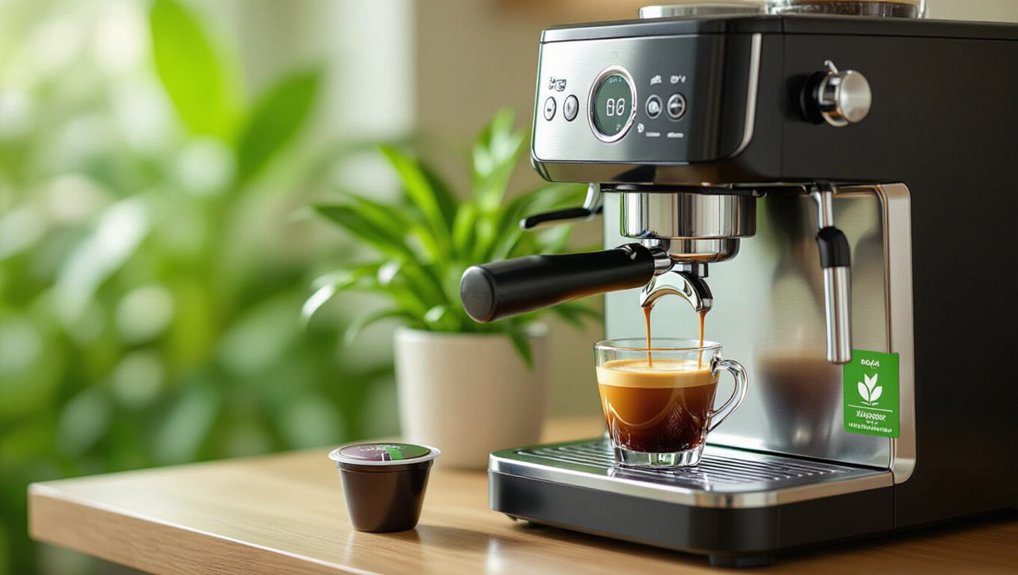
Because sustainable coffee production has become a critical global concern, synthetic coffee emerges as a potential game-changer in environmental conservation.
By utilizing upcycled food waste materials like date pits and lemon peels, this innovative approach addresses key sustainability challenges in coffee production.
Synthetic coffee significantly reduces deforestation and transportation emissions compared to traditional farming methods. It requires less water and offers a more environmentally friendly alternative to conventional coffee cultivation.
While critics argue about potential impacts on traditional coffee farmers, the technology represents a promising solution to mitigating climate change’s effects on our beloved morning brew.
Market Trends and Consumer Perspectives
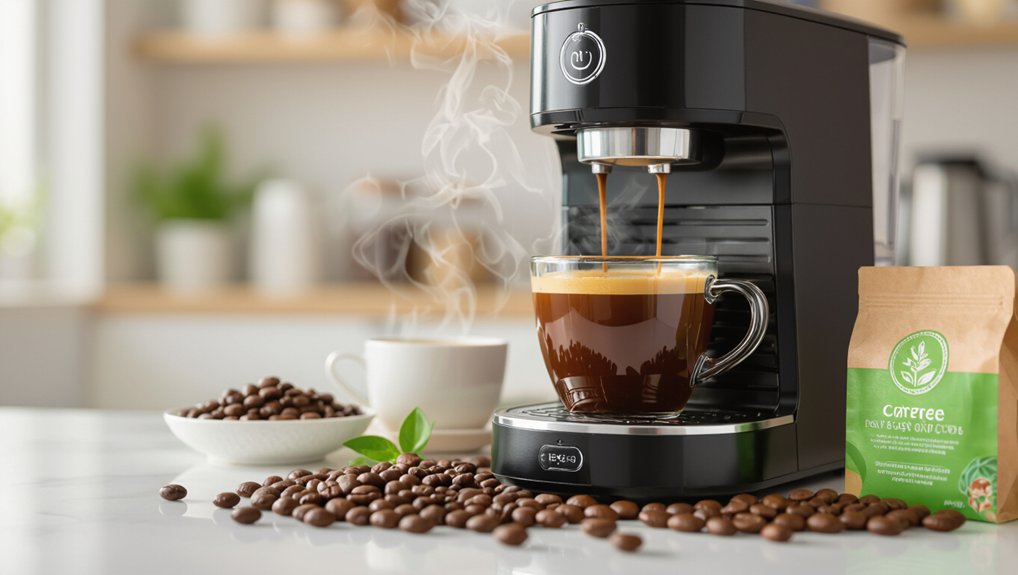
As environmental considerations reshape coffee production, market dynamics are equally transforming.
Synthetic coffee, a lab-grown alternative, is gaining traction with significant investment driving innovation. Consumer feedback remains mixed, with some finding the flavor profile less complex than traditional coffee. Limited availability in the U.S. market hasn’t deterred start-ups exploring ecological benefits and sustainability.
While traditional coffee farmers express concerns, these alternatives promise reduced transportation emissions and lower environmental impact. Market trends suggest growing interest in these innovative coffee solutions, though widespread adoption remains uncertain.
The delicate balance between technological advancement and preserving coffee culture continues to evolve.
Future Innovations in Synthetic Coffee Development
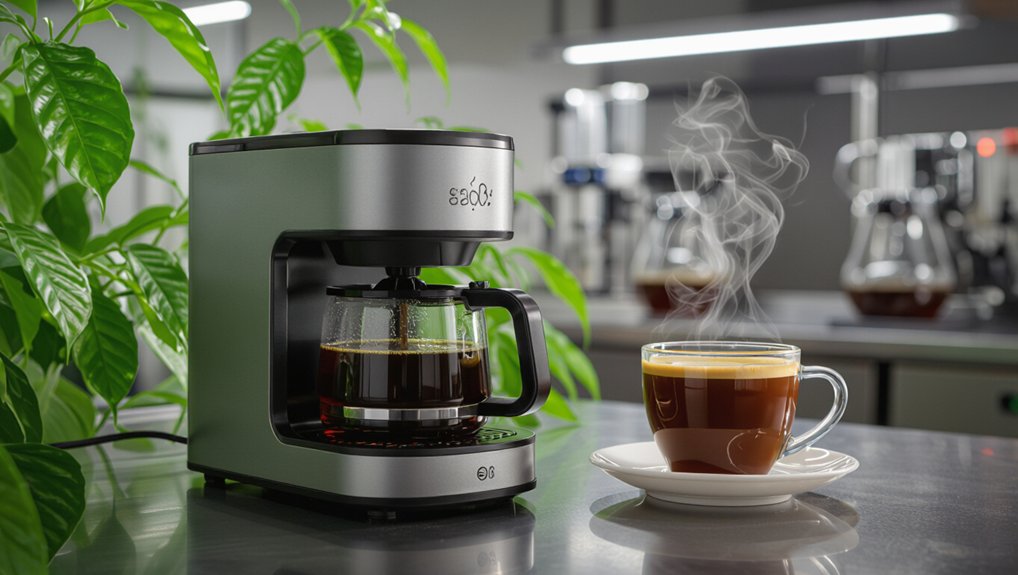
Given the rapid evolution of synthetic coffee technology, researchers and innovators are pushing boundaries to create increasingly sophisticated alternatives that challenge traditional coffee production.
Bioengineering methods are revolutionizing synthetic coffee development, focusing on improving flavor complexity through upcycled ingredients and sustainable production techniques.
I’m seeing exciting advancements that address environmental impact while meeting growing consumer demand.
Cutting-edge approaches now target precise flavor profiles and reduced caffeine content, appealing to health-conscious coffee lovers.
These innovations promise a future where synthetic coffee isn’t just an alternative, but a sophisticated, environmentally responsible beverage that rivals traditional brewing methods.
Frequently Asked Questions
Why Is Synthetic Caffeine Bad for You?
I’ve found synthetic caffeine harmful because it causes rapid energy spikes, contains potentially dangerous additives, and can lead to intense crashes that disrupt my health, potentially increasing anxiety and creating dependency faster than natural sources.
What Is the Healthiest Coffee to Drink Daily?
I recommend black coffee as the healthiest daily choice. It’s low-calorie, packed with antioxidants, and when consumed moderately (3-4 cups daily), can offer potential health benefits like reduced risk of diabetes and certain chronic diseases.
Why Might You Be Drinking Synthetic Coffee?
I’d choose synthetic coffee to support sustainable agriculture, reduce environmental impact, and explore innovative food technologies. It’s a forward-thinking option that addresses climate challenges while offering a familiar coffee experience with less ecological strain.
What Is the Difference Between Natural and Synthetic Coffee?
I’ll help you create a 35-word answer about the difference between natural and synthetic coffee:
I’ve found that natural coffee comes from traditional beans with rich, complex flavors, while synthetic coffee is lab-created, using alternative ingredients to mimic coffee’s taste and reduce environmental impact.
In Conclusion
Synthetic coffee’s journey is just beginning, and it’s fascinating to watch. While it won’t replace traditional coffee overnight, it offers an exciting alternative for eco-conscious consumers. You’ll want to keep an eye on how this technology evolves, balancing environmental benefits with flavor innovation. As a coffee lover, I’m curious to see how synthetic options might complement—not compete with—our beloved traditional brew. The future of coffee? It’s looking pretty intriguing.

